FROM ISRAELS PREEMINENT HISTORIAN, A SWEEPING AND PROVOCATIVE HISTORY OF 1967-THE SIX-DAY WAR, WHAT LED UP TO IT, WHAT CAME AFTER, AND HOW IT CHANGED EVERYTHING
Tom Segevs acclaimed One Palestine, Complete and The Seventh Million overturned accepted views of the history of Israel. Now Segev brings his masterly skills to the watershed year when six days of war reshaped the country and the entire region.
Going far beyond a military account, Segev re-creates the crisis in Israel leading up to the war, showing how economic recession, mass emigration, a full grasp of the Holocausts horrors, and the dire threats made by neighbor states combined to produce an apocalyptic climate of doom. Once the war began and the astonishing disparity of forces became obvious, tensions shifted away from the question of survival as Israels generals and politicians wrangled over just how far the country could go. Then came victory, and with it a swift transformation from dread to bravado, as one popular postwar joke revealed: A soldier says to his friend, Lets take over Cairo. The friend replies, Then what shall we do in the afternoon?
Mining a wealth of unpublished letters, diaries, government memos, and military records, Segev reconstructs an era of new possibilities and tragic missteps. He introduces the legendary figuresMoshe Dayan, Golda Meir, Gamal Abdel Nasser, and Lyndon Johnsonas well as an epic cast of soldiers, lobbyists, refugees, and settlers. He reveals as never before Israels intimacy with the White House and explains how domestic political rivalries sabotaged Israels chance of treaties on two fronts. Above all, he challenges the conventional view that the war was inevitable, showing that a series of disastrous miscalculations lay behind the bloodshed then as well as now.
A vibrant and original history, 1967 is sure to stand as the definitive account of that pivotal year.
ALSO BY TOM SEGEV
Elvis in Jerusalem: Post-Zionism and the Americanization of Israel
One Palestine, Complete: Jews and Arabs Under the British Mandate
The Seventh Million: The Israelis and the Holocaust
1949: The First Israelis
Soldiers of Evil: The Commandants of the Nazi Concentration Camps
1967

The author and publisher have provided this e-book to you for your personal use only. You may not make this e-book publicly available in any way. Copyright infringement is against the law. If you believe the copy of this e-book you are reading infringes on the authors copyright, please notify the publisher at: us.macmillanusa.com/piracy.

Metropolitan Books
Henry Holt and Company, LLC
Publishers since 1866
175 Fifth Avenue
New York, New York 10010
www.henryholt.com
Metropolitan Books and  are registered
are registered
trademarks of Henry Holt and Company, LLC.
Copyright 2005 by Tom Segev
Translation copyright 2007 by Jessica Cohen
All rights reserved.
Originally published in Israel in 2005 under the title
1967: Vehaaretz shinta et paneiha by Keter Publishers, Jerusalem.
Henry Holt books are available for special promotions and
premiums. For details contact: Director, Special Markets.
First U.S. Edition 2007
Designed by Kelly Too
Printed in the United States of America
1 3 5 7 9 10 8 6 4 2
eISBN 9781429911672
For Itai, at twenty-five
INTRODUCTION
HEROES
1. YEHIAM
On June 5, 1966, in the evening hours, Yosef Weitz lit two candles in memory of his son, Yehiam, on the twentieth anniversary of his death. Weitz, who was seventy-six at the time, was the head forester for the Jewish National Fund (JNF), one of the Zionist movements institutions, concerned with the acquisition of public land. He had lived in the land of Israel for close to sixty years, during which time the JNF had planted millions of trees. Weitz had come from Russia at the age of eighteen; he began his life in Palestine as an agricultural laborer and was promoted over the years until he became one of the directors of the JNF. He was also involved in planning new communities and was considered a founding father of the Israeli state. In his old age, he wrote childrens stories. Sitting by the memorial candles, Weitz looked through old letters from his son; his Yehiam, he wrote in his diary, gazed down at him from a photograph on the wall, smiling sadly.
Yehiam received his name in the midst of a flurry of war and hope. He was born in October 1918 in one of the first Zionist agricultural settlements, Yavnel, in the Lower Galilee. The army of the British general Edmund Allenby was in the final stages of occupying Turkish-ruled Palestine; his mounted soldiers reached the Yavnel area on the night of Yehiams birth. Eight days later, on the day of Yehiams circumcision and naming, Yosef Weitz first heard about the statement issued by the British foreign secretary, Lord Arthur James Balfour, proclaiming support for the Zionist movements aspirations to build a national home in Palestine, a Jewish state. The Balfour Declaration had been issued some ten months earlier, but the Lower Galilee was still under Turkish rule at the time and had no contact with the British-occupied areas.
Weitz and his neighbors were ecstatic when they learned of the declaration; as they gathered for the bris, a vision of imminent salvation beat in their hearts. Their shining eyes and joyous exclamations voiced a blessingthat the Jewish people shall live in their land, wrote Weitz. When the mohel asked for the name of the newborn, one of the guests shouted out, Yehiam! Yehiam!a Hebrew construct meaning Long live the nation. And that was how the boy got his name. It was a token of the covenant the English had made with the Hebrew nation, that it would be resurrected in its own land, in Weitzs words. He could not have conceived of a more patriotic name; it had never been given before.
Yehiam grew up in Jerusalem. His father was one of the founders of a comfortable, remote neighborhood in the western part of town, Beit Hakerem: stone houses with red tiled roofs were surrounded by the greenery of pine trees and cypresses. Daffodils and cyclamens blossomed in the gardens, and Yosef Weitz had a cherry tree. The residents of the neighborhood raised their children as loyal Zionists and pioneering leaders, in the spirit of European culture, in preparation for life in the long-awaited national home.
Yehiam studied at the Hebrew Gymnasium, as did most of the children of Jerusalems founding elite. He was a good student, who once complained that his teachers were not adequately preparing their students to serve the homeland. He grew into a handsome, charismatic young man, and he joined Hashomer Hatzair, the socialist youth movement, to train himself for a working life on a kibbutz, as was customary among many young people. When the Arab revolt against the British and the Zionists erupted in 1936, Yehiam joined the ranks, as his father wrotemeaning the Hagana, the largest military organization of the Jewish community in Palestine. He seems to be gaining serenity, his father wrote; has he found himself? It seemed he had not: Yehiam soon left to study chemistry and botany at the University of London. Im falling in love with London, he wrote to his parents. But when the Second World War broke out he came home and soon enlisted again, this time in the Palmah, the Haganas quasi-standing army.
Next page

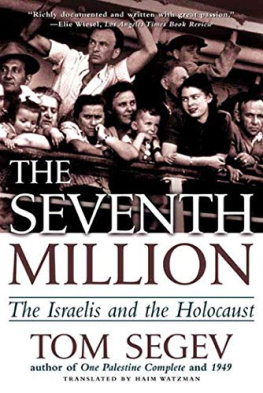

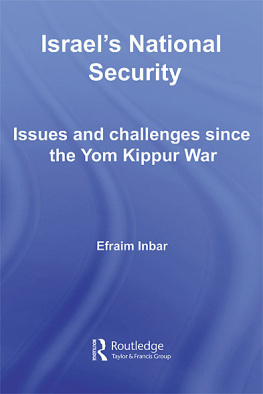
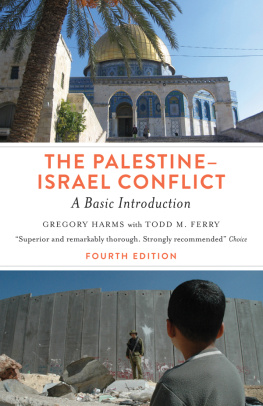
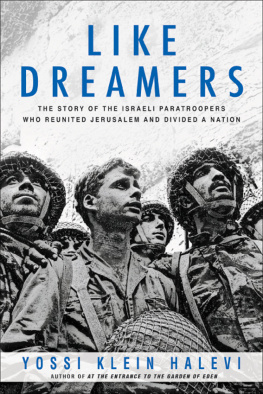

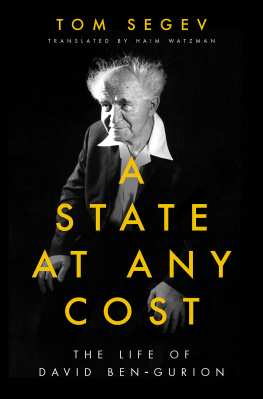


 are registered
are registered